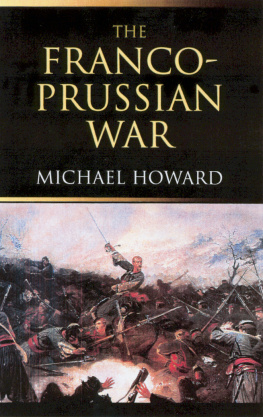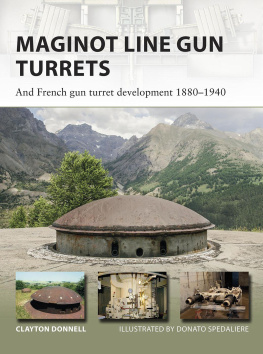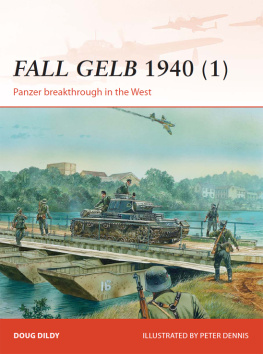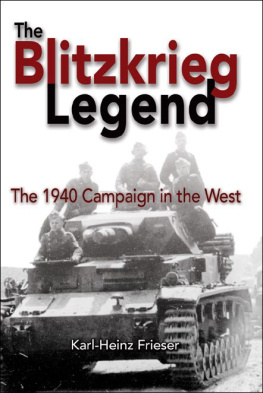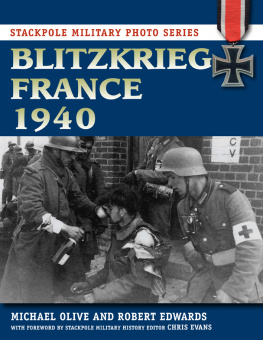First published in Great Britain in 2013 by
Pen & Sword Military
an imprint of
Pen & Sword Books Ltd
47 Church Street
Barnsley
South Yorkshire
S70 2AS
Copyright Douglas Fermer 2013
ISBN 978-1-78159-354-7
eISBN 9781473831452
The right of Douglas Fermer to be identified as Author of this Work has been asserted by him in accordance with the Copyright, Designs and Patents Act 1988.
A CIP catalogue record for this book is available from the British Library.
All rights reserved. No part of this book may be reproduced or transmitted in any form or by any means, electronic or mechanical including photocopying, recording or by any information storage and retrieval system, without permission from the Publisher in writing.
Typeset in 10/12 Ehrhardt by Concept, Huddersfield, West Yorkshire
Printed and bound in England by CPI Group (UK) Ltd, Croydon, CRO 4YY
Pen & Sword Books Ltd incorporates the imprints of Pen & Sword Archaeology, Atlas, Aviation, Battleground, Discovery, Family History, History, Maritime, Military, Naval, Politics, Railways, Select, Social History, Transport, True Crime, Claymore Press, Frontline Books, Leo Cooper, Praetorian Press, Remember When, Seaforth Publishing and Wharncliffe.
For a complete list of Pen & Sword titles please contact
PEN & SWORD BOOKS LIMITED
47 Church Street, Barnsley, South Yorkshire, S70 2AS, England
E-mail: enquiries@pen-and-sword.co.uk
Website: www.pen-and-sword.co.uk

Contents
List of Maps
List of Illustrations
. Emperor Napoleon III (180873).
. Marshal Edmond Le Buf (180988), Minister of War.
. Helmuth von Moltke the Elder (180091).
. German troops storm the Chateau of Geissberg during the Battle of Wissembourg, 4 August 1870. From an 1884 painting by Carl Rchling (18551920).
. Defence of Stiring station near Forbach, 6 August 1870. From an 1877 painting by Alphonse de Neuville (183585).
. French troops in retreat, August 1870. Sketch by Alphonse de Neuville.
. A convoy of French wounded, August 1870. Sketch by Alphonse de Neuville.
. On the Firing Line: A Memory of 16 August 1870. Engraving after an 1886 painting by Pierre-Georges Jeanniot (18481934).
. Marshal Achille Bazaine (181188). Photograph taken during the Mexican campaign.
. Storming of the Cemetery of Saint-Privat, evening of 18 August 1870. Engraving after an 1881 painting by Alphonse de Neuville.
. The French retreat towards Metz, 18 August 1870. Engraving after a painting by Richard Kntel (18571914).
. The White Flag at Sedan, 1 September 1870.
. Proclamation of the German Empire in the Hall of Mirrors at Versailles, 18 January 1871. From an 1885 painting by Anton von Werner (18431915). Bismarck is in the white uniform at centre.
. Kaiser Wilhelm II (18591941) and, at right, Helmuth von Moltke the Younger (18481916) on manoeuvres before the First World War.
. A French regiment departs for the front, Paris, August 1914.
. General Joseph Joffre (18521931) at centre with Generals Paul Pau (18481932) at right and Edouard de Castelnau (18511944) at left. Note Paus artificial left hand, the result of a wound in 1870.
. A German infantry column marching through a burning Belgian village, August 1914.
. Joffres counteroffensive depended on moving units rapidly by train. Men of the 6th Territorial Infantry Regiment prepare to embark at Dunkirk, August 1914.
. General Joseph Gallieni (18491916), Military Governor of Paris. Photograph dated 2 September 1914.
. French artillery in action during the Battle of the Marne, September 1914. This photograph was taken near Varreddes, north-east of Meaux.
. The aftermath of the Marne. Dead horses and men near Etrpilly (Marne).
. Philippe Ptain (18561951) being presented with his marshals baton by Premier Georges Clemenceau at a victory ceremony in Metz, 8 December 1918. President Raymond Poincar has his back to the camera at right, while at left Marshal Foch, Field Marshal Haig and General Pershing look on.
. German tanks waiting to be deployed in an assault, MayJune 1940.
. General Heinz Guderian (18881954) directs the advance of his XIX Panzer Corps from his armoured command vehicle.
. German columns advancing after their victories on the Meuse. In this photograph of 17 May 1940 smoke rises from the burning village of Ttaigne, south-east of Sedan in the valley of the River Chiers.
. Chaos on the roads: civilians and defeated French troops caught in the exodus of MayJune 1940.
. From left to right in this photograph of 10 June 1940 the day the government evacuated Paris are General Maxime Weygand (18671965), Paul Baudouin (18941964), Premier Paul Reynaud (18781966) and, in civilian dress looming prophetically over his shoulder, Marshal Ptain.
. German infantry advancing, having broken through the Weygand Line. Photograph taken on or about 14 June 1940.
. Burning buildings in Rouen after its capture, 10 or 11 June 1940.
. The tears of the vanquished. A Frenchman weeps as German soldiers march into Paris, 14 June 1940.
Picture sources and credits: Cassells Illustrated History of the Franco-German War , London, 1899, No. 2; Jules Claretie, Histoire de la Rvolution de 187071 , Paris, 1872, Nos.1, 3; Illustrated London News , 17 September 1870, No. 12; J.F. Maurice, ed., The Franco-German War 187071, by Generals And Other Officers Who Took Part In The Campaign , London, 1900, Nos. 4, 11, 13; Quatrelles, A coups de fusil , Paris, 1875, Nos. 6, 7; Jules Richard, En Campagne: Tableaux et Dessins de A. de Neuville , Paris [n.d.], No. 10; Jules Richard, En Campagne (deuxime srie ), Paris [n.d., circa 1885], No. 8; L. Rousset, Histoire Gnrale de la Guerre Franco-Allemande (18701871 ), illustrated edition, 2 vols., Paris, 191012, No. 5.
Nos 114, photography by Tony Weller; Nos 1530 courtesy of TopFoto.
Preface
This book tells the story of three pivotal events in the history of modern France the German invasions of 1870, 1914 and 1940. It focuses on the opening campaigns fought between the French and German armies in three wars, offering in each case a compact account of what happened and how. One justification for such an approach is that on all three occasions the first six weeks of fighting following the crossing of the French frontier by German armies proved crucial in determining Frances ability to continue resistance. In each case the force and speed of the German offensive forced the French to abandon their own military plans in order to defend their own territory. The three campaigns saw fighting sometimes over the very same ground, but none was an exact replay of the last, and each had a different outcome. In two cases the military decision went in Germanys favour but in the other, in 1914, German forces were checked by a French counteroffensive.
The lives of three generations of Frenchmen and Germans were shaped by the recurrent clashes between the two powers in their protracted contest for mastery in Europe. The German Empire was created as a result of the Franco-Prussian War, when the Germans achieved a spectacularly rapid victory at Sedan in 1870 over a French imperial army that until that summer had been considered the best in Europe. Although newly mustered French armies fought on for another five months, they proved unable to reverse the verdict of the opening campaign. Learning from the disaster, the next generation of Frenchmen succeeded in turning back the German invasion of 1914 by a victory at the Marne, but they were unable to drive their stronger opponent from French soil for another four years, and then only with the help of allies. Germany was defeated in 1918, but the attempt to restrain her military power by the Treaty of Versailles unravelled within a few years. The revival of German ambitions under Hitler, and his unscrupulous use of force against Germanys neighbours, brought the two countries to war again twenty-one years later. In 1940 German armies achieved victory on a scale that led with breathtaking speed to French capitulation. It was the one occasion when military triumph enabled the victor to impose his political will immediately.




